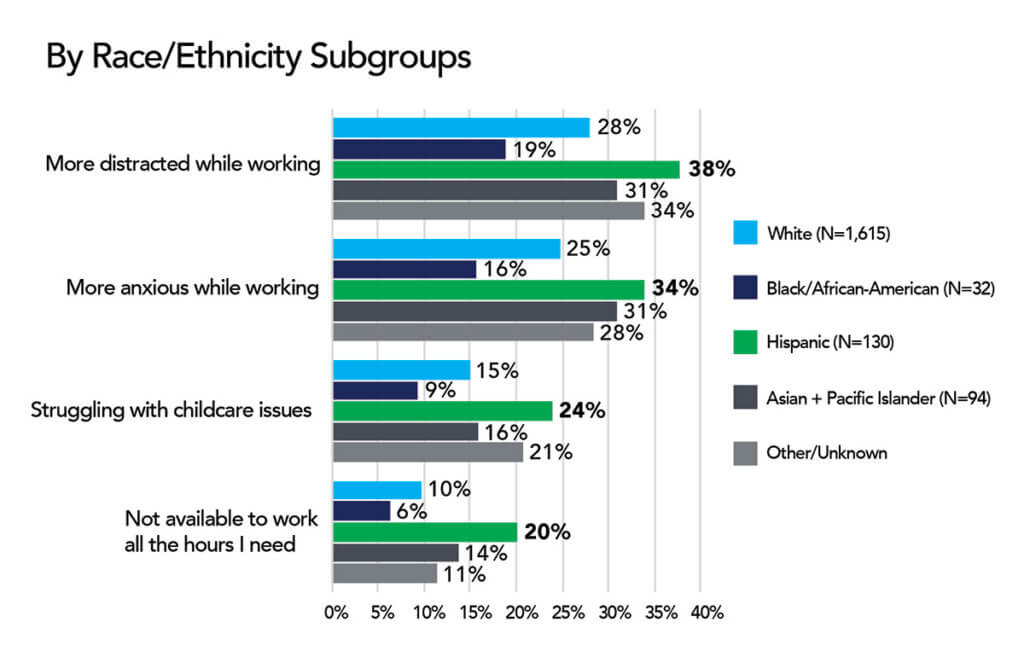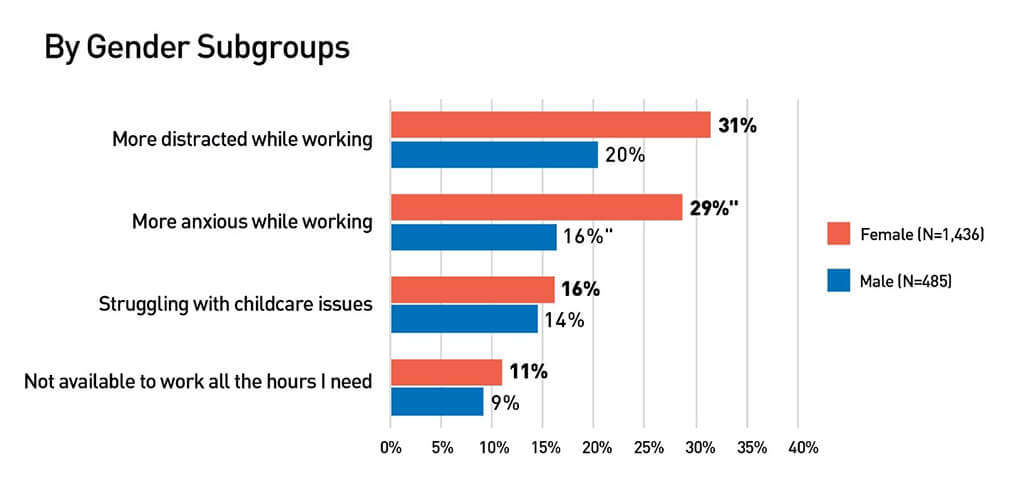As the COVID-19 pandemic continues to grip the U.S., the HERO Registry is shining a light on many of the challenges healthcare workers are facing. Similar to the the general population, healthcare workers who are are female and/or Latino or Hispanic are facing extra challenges when it comes to balancing work with changes in schools and childcare facilities.
We recently asked HERO members to identify how recent school and childcare changes have affected their ability to work. Of the 2,000 members that responded, 28% acknowledged feeling more distracted at work; 25% said they were more anxious because of school changes; 15% said they were struggling to find and pay for childcare; and 10% said they were unable to work the number of hours they need to work.
But a deeper dive into this HERO survey data shows differences when it comes to race/ethnicity and gender. Hispanic and Latino healthcare workers responding to the survey said that they were not available to work all the hours they needed to work at more than double the rate of white healthcare workers. Across all measures, healthcare workers who are Hispanic and Latino were more likely to report struggling with childcare issues than any other group.

A closer look at the HERO data also shows that while male and female healthcare workers are showing similar rates of not being able to work all hours needed and struggling to find childcare, women were more likely to identify with being distracted and more anxious while working than men.

What’s Next?
We appreciate the input from the HERO Community who help inform our research by completing our Hot Topic survey. Your participation helps bring awareness to the challenges healthcare workers are facing.
If you are not a HERO member, please join today. You can contribute to what it is like to work on the front lines of COVID-19, receive opportunities to participate in research, and help to protect all people working in health care as well as their families and communities.